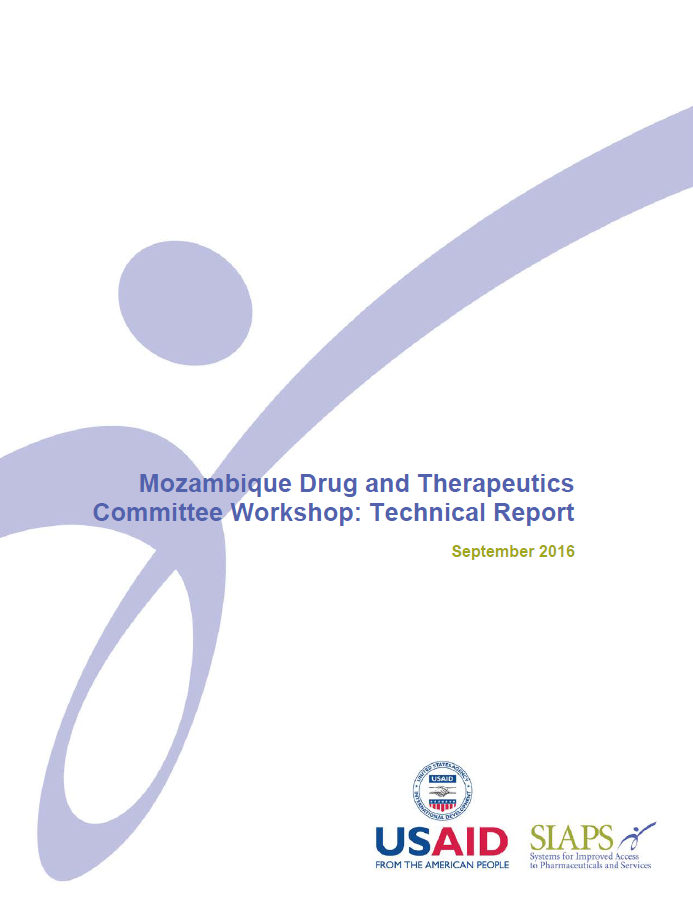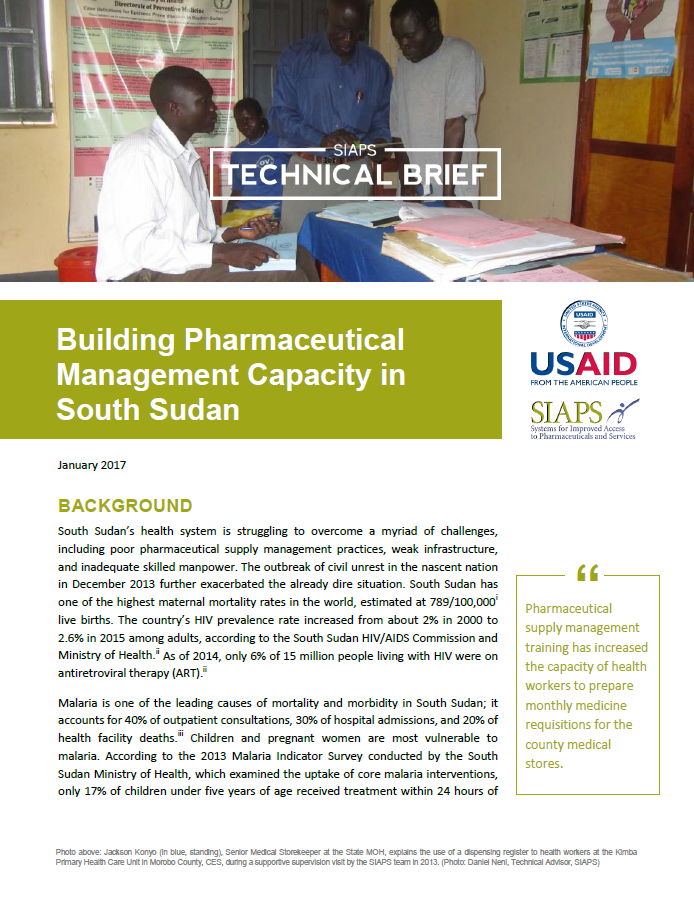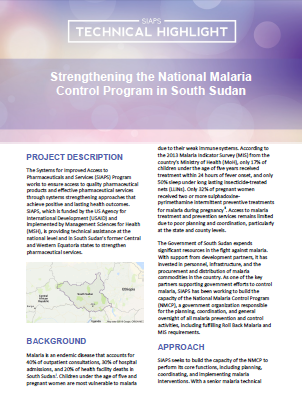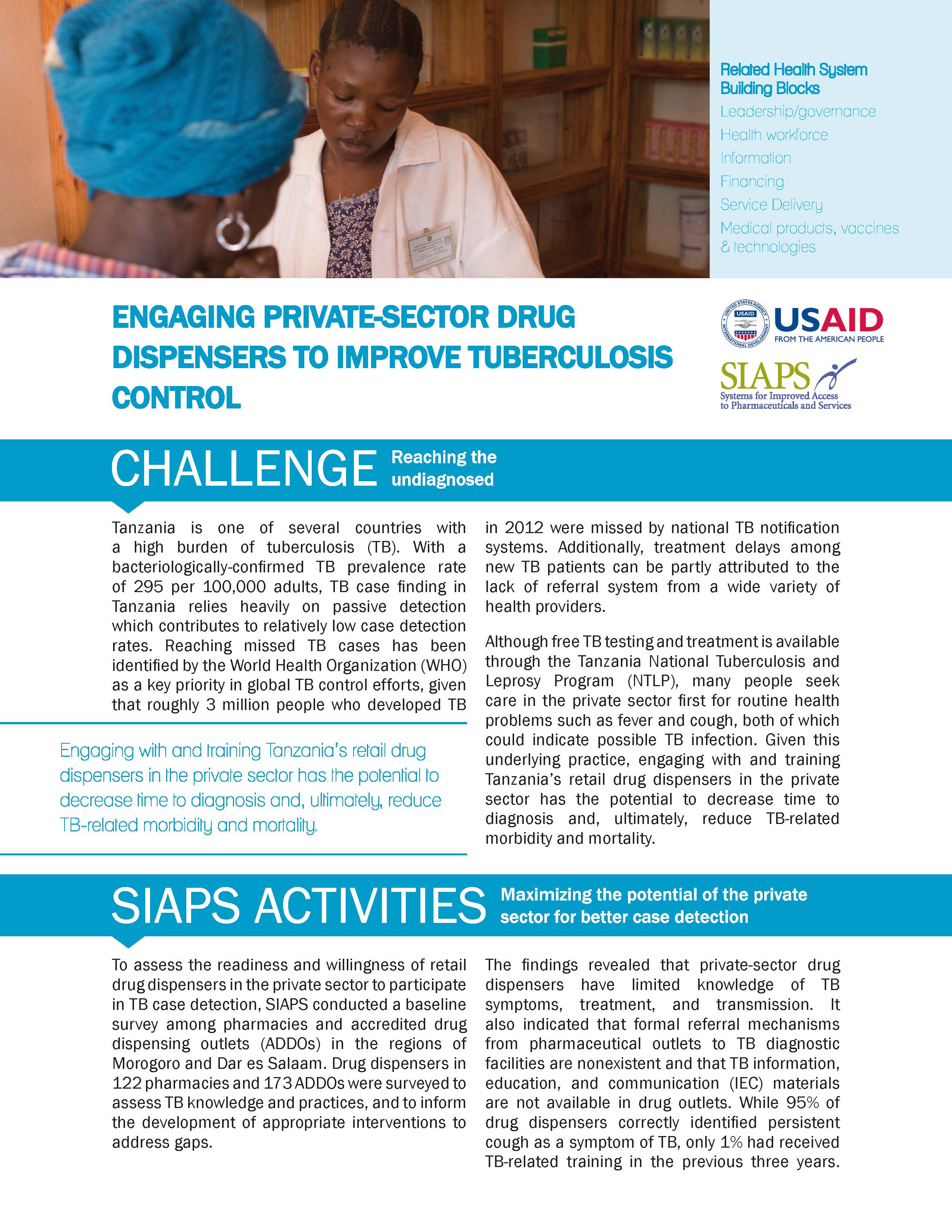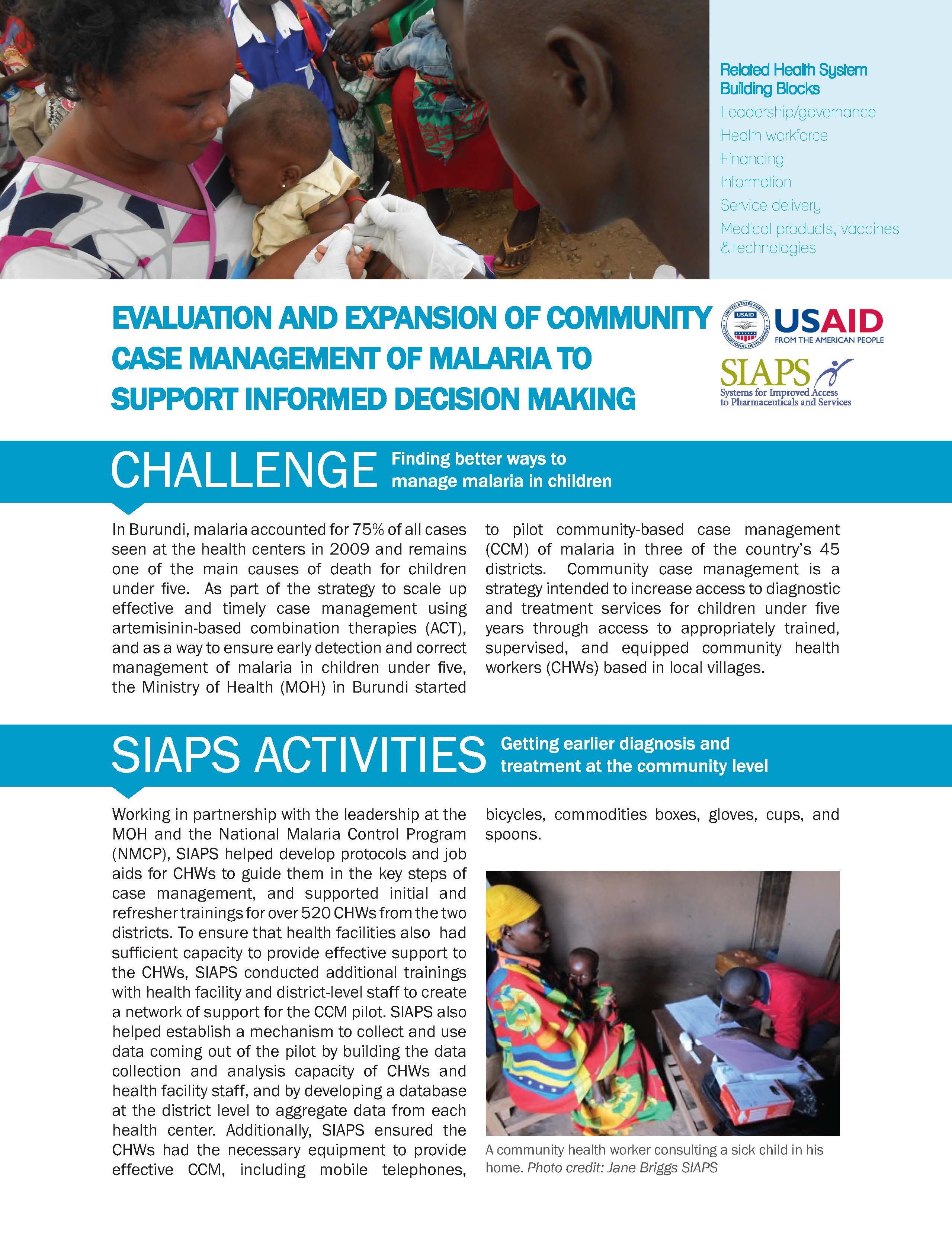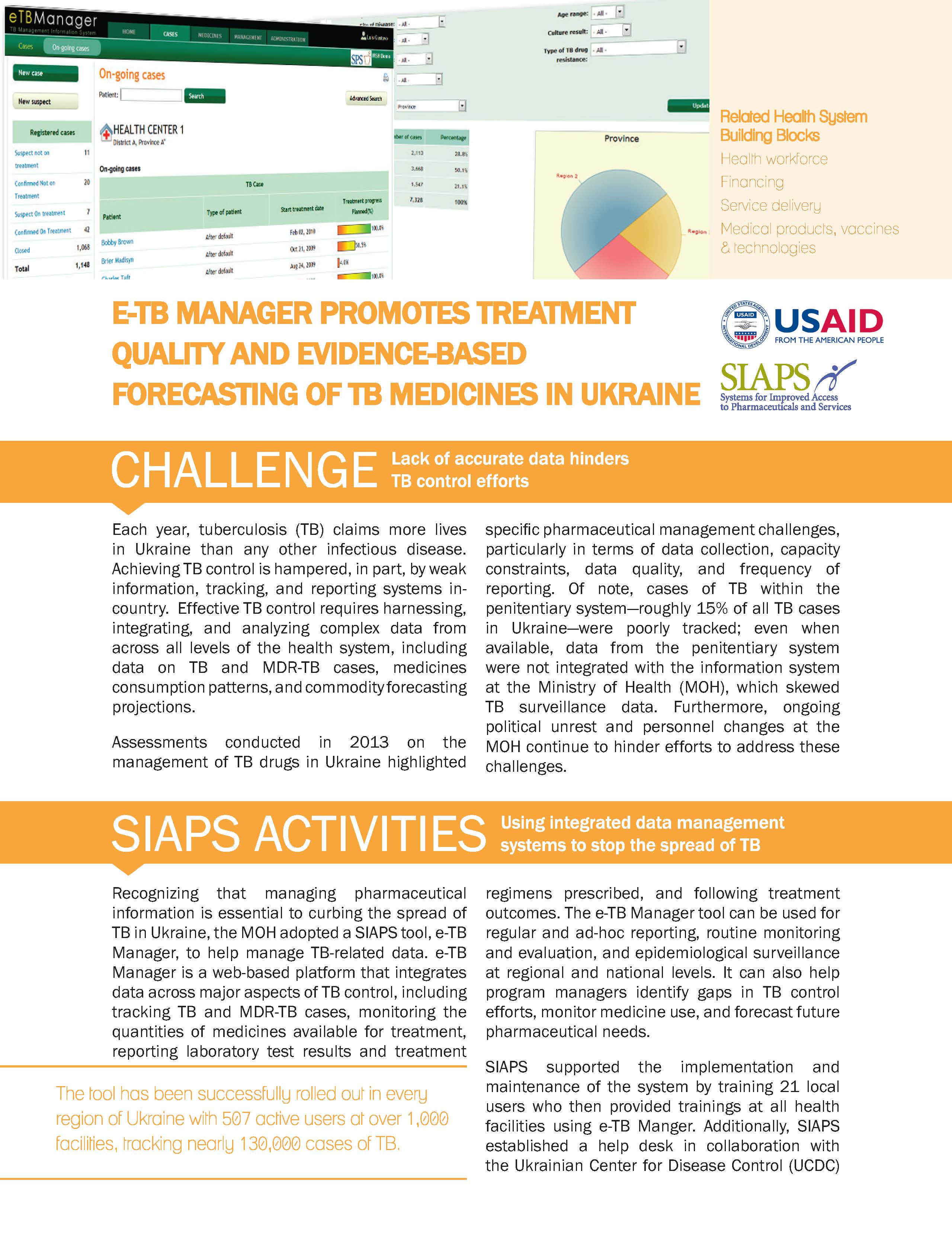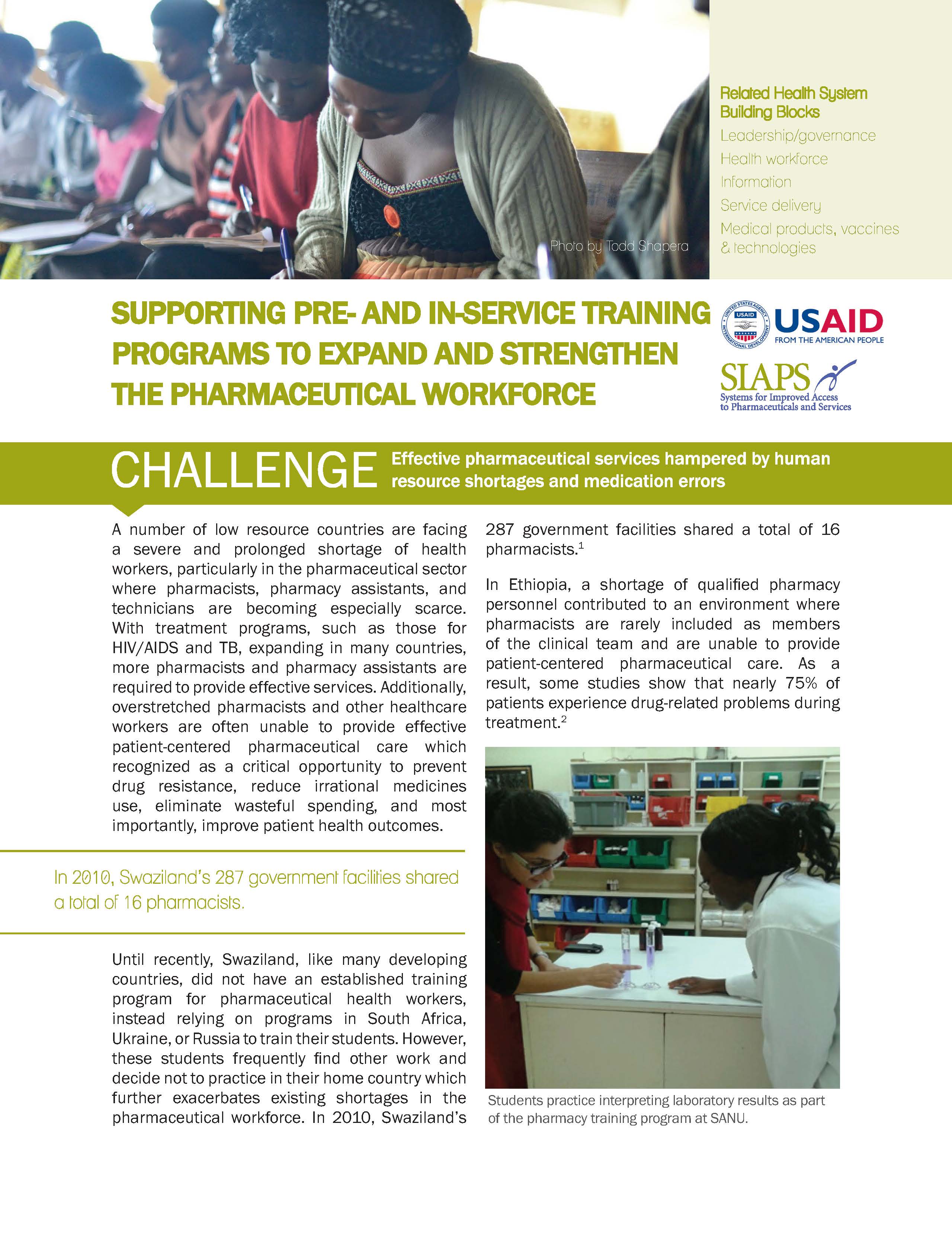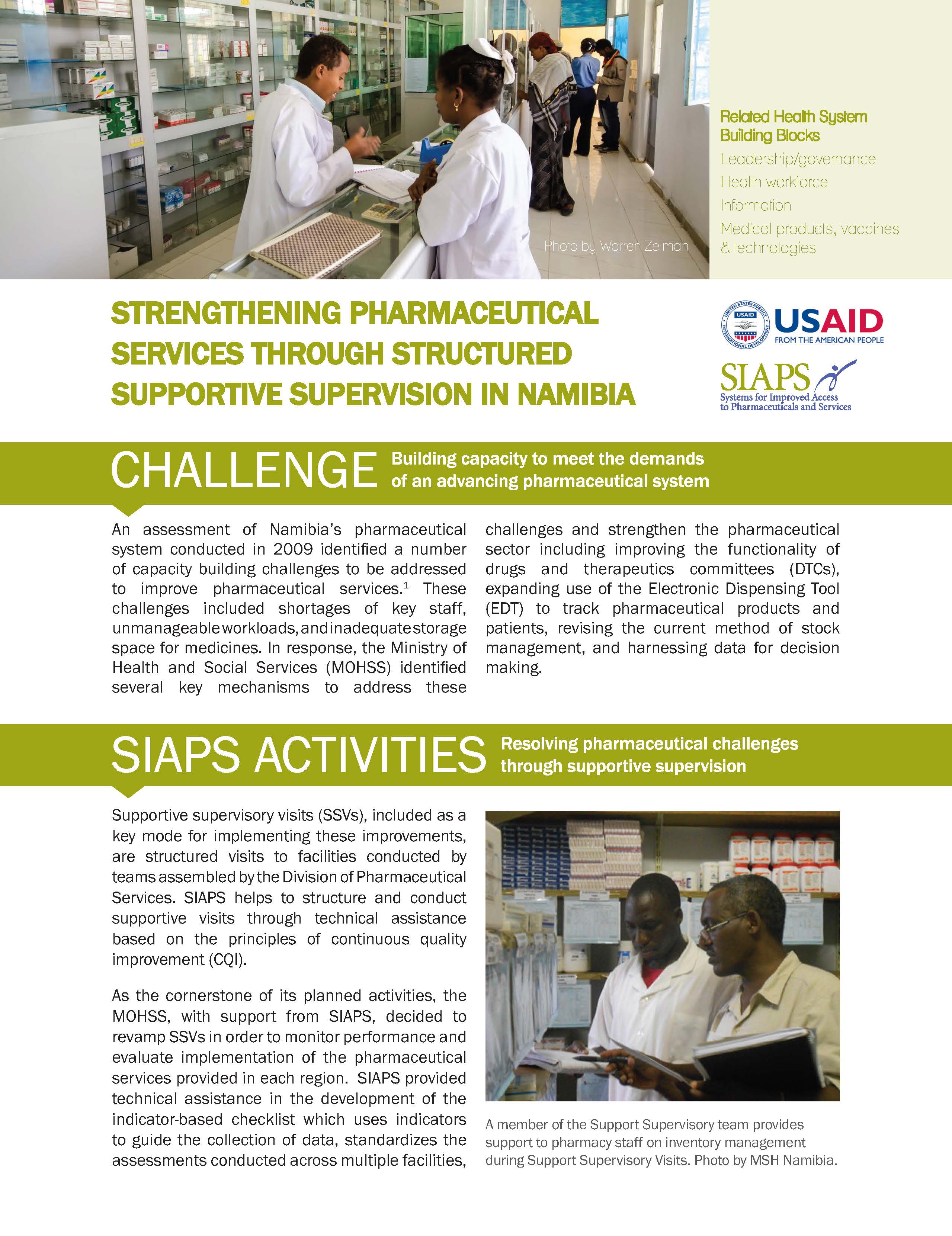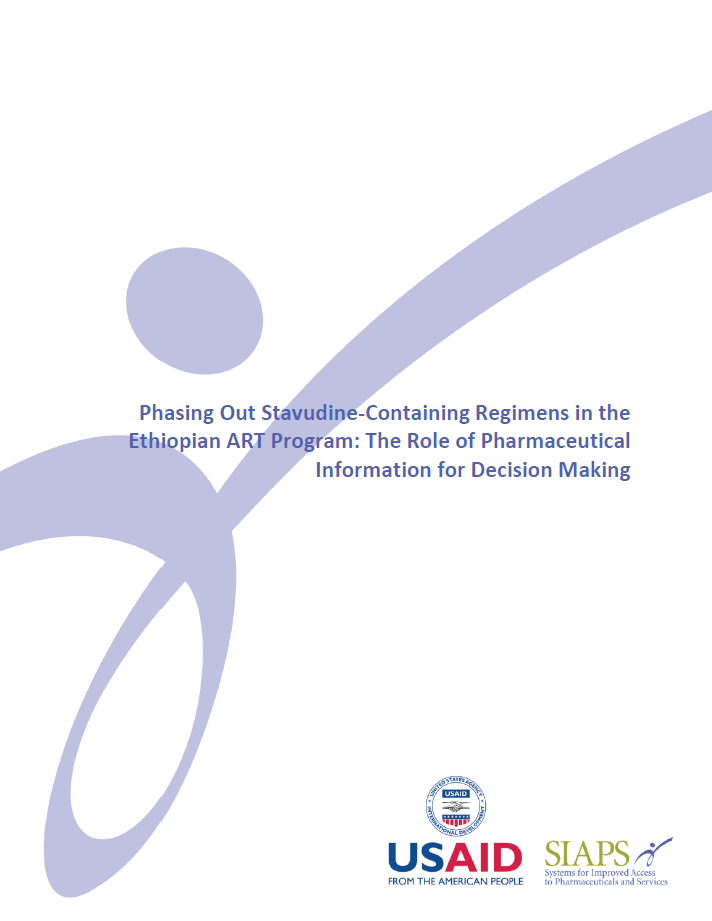Inefficient and irrational use of medicines is a well-documented problem in both developed and developing countries. It leads to cost increases and adverse clinical effects for patients. The inappropriate use of medicine can be reduced if health care professionals involved in the different aspects of medicine use promote good practices for medicine management and use. … Read more
South Sudan’s health system is struggling to overcome a myriad of challenges, including poor pharmaceutical supply management practices, weak infrastructure, and inadequate skilled manpower. The outbreak of civil unrest in the nascent nation in December 2013 further exacerbated the already dire situation. South Sudan has one of the highest maternal mortality rates in the world, … Read more
Namibia faces a dual public health burden of HIV and AIDS and tuberculosis (TB). Critical to the treatment and management of these diseases is an effective workforce that can provide quality pharmaceutical services throughout the country. Pharmacists and pharmacist assistants (PAs) play critical roles in dispensing life-saving medications, monitoring patient health and progress, and educating both patients and other health … Read more
The Government of South Sudan expends significant resources in the fight against malaria. With support from development partners, it has invested in personnel, infrastructure, and the procurement and distribution of malaria commodities in the country. As one of the key partners supporting government efforts to control malaria, SIAPS has been working to build the capacity … Read more
To assess the readiness and willingness of retail drug dispensers in the private sector to participate in TB case detection, SIAPS conducted a baseline survey among pharmacies and accredited drug dispensing outlets (ADDOs) in the regions of Morogoro and Dar es Salaam. Drug dispensers in 122 pharmacies and 173 ADDOs were surveyed to assess TB knowledge and practices, and to inform the development … Read more
Assessments conducted in 2013 on the management of TB drugs in Ukraine highlighted specific pharmaceutical management challenges, particularly in terms of data collection, capacity constraints, data quality, and frequency of reporting. Of note, cases of TB within the penitentiary system―roughly 15% of all TB cases in Ukraine―were poorly tracked; even when available, data from the penitentiary system were not integrated with the information system at … Read more
A number of low resource countries are facing a severe and prolonged shortage of health workers, particularly in the pharmaceutical sector where pharmacists, pharmacy assistants, and technicians are becoming especially scarce. With treatment programs, such as those for HIV/AIDS and TB, expanding in many countries, more pharmacists and pharmacy assistants are required to provide effective services. Additionally, overstretched pharmacists and other healthcare workers are often … Read more
An assessment of Namibia’s pharmaceutical system conducted in 2009 identified a number of capacity building challenges to be addressed to improve pharmaceutical services. These challenges included shortages of key staff, unmanageable workloads, and inadequate storage space for medicines. In response, the Ministry of Health and Social Services (MOHSS) identified several key mechanisms to address these challenges and strengthen the pharmaceutical sector including improving the functionality … Read more
This was a descriptive retrospective study that used secondary data collected from ART service pharmacies’ routine reports. The reports contained the patient’s medication profiles on specific type of regimen. All first- and second-line regimens are captured by the reports. The study used data and reports from September 2012 to September 2014. About 205,832 patients were … Read more
capacity building, Drug Information Service, E Ejigu, E Geremew, E Rutta, Ethiopia, H Tadeg, HIV/AIDS, M Alemayehu, Supervision, Technical Report, Y Yiegezu
